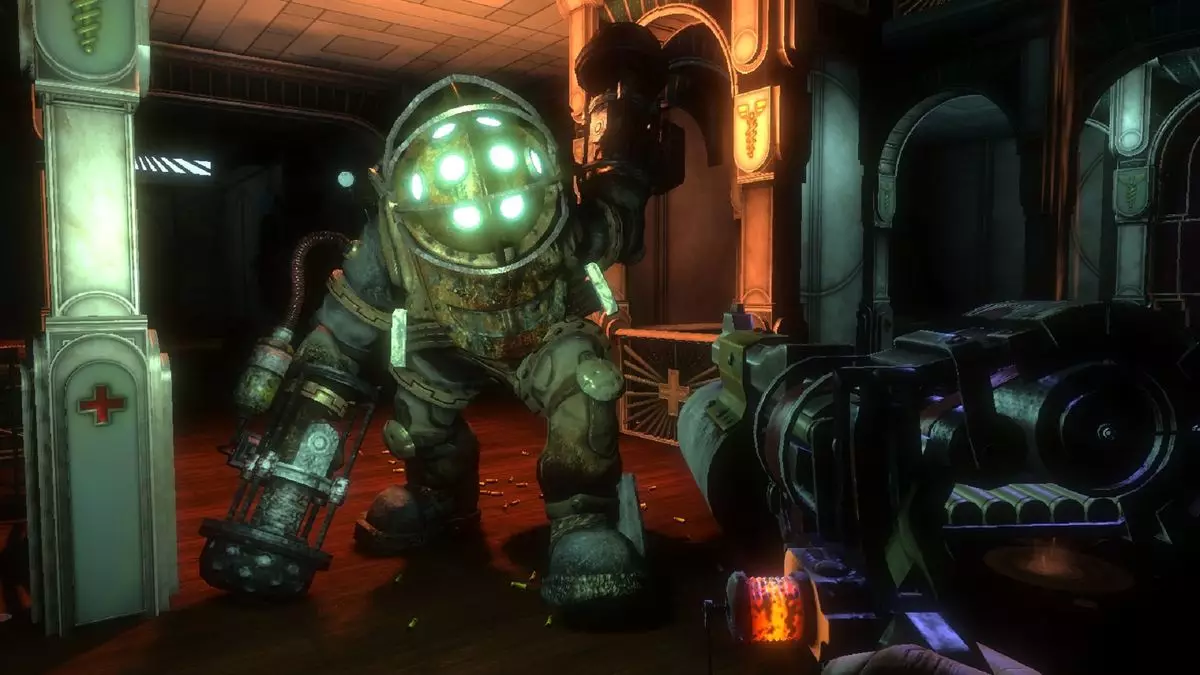In the ever-evolving landscape of video game development, few figures hold as much influence as Ken Levine. Notably recognized for his groundbreaking work on the BioShock series, Levine’s insights often shape perceptions about narrative and gameplay mechanics. Recently, he provoked significant discussion by characterizing his earlier iconic titles as merely “corridors” during a conversation with Gameindustry.biz. This statement has sparked curiosity and controversy, especially as he teased his upcoming game, “Judas,” which promises a radically different approach.
Levine’s analogy of BioShock and BioShock Infinite being akin to a long corridor with predetermined trigger points highlights a fundamental critique of linear gameplay structures. While these games excelled in immersive storytelling and atmospheric design, the linear mechanics often led players down a constrained path marked by guided experiences rather than genuine exploration. As players embark on their journeys in these games, they find themselves navigating through beautifully crafted environments, yet within a framework that could feel restrictive. With this admission, Levine is not merely critiquing his past work; he is pushing the envelope, nudging both developers and gamers to reconsider the nature of player agency in video games.
Expanding Player Agency in “Judas”
Contrasting sharply with his previous projects, “Judas” is touted as a game where player choice and agency are not just buzzwords but integral to its design. Levine hints that one of the most challenging aspects of developing Judas will be incorporating systems that allow characters within the game to react to the player’s actions organically. This commitment to a more responsive gameplay experience presents new challenges for developers tasked with crafting a believable environmental narrative. The prospect of characters who not only witness but also comment on player choices offers a tantalizing glimpse into a more dynamic world.
Levine emphasizes that this design philosophy involves tracking an extensive array of variables, akin to managing vast amounts of data. By enabling characters to engage with the nuances of player behavior, the developers aim to create a living, breathing ecosystem within Judas. This depth to player interactions has the potential to enrich the narrative experience significantly, allowing for a multitude of outcomes derived from player decisions.
The Legacy of BioShock and the Future
While Levine’s remarks may stir nostalgia among fans of BioShock, they also set the stage for anticipation surrounding Judas. The BioShock games, while linear at their core, paved the way for deeper moral and philosophical questions, wrapped in engaging gameplay. Fans will undoubtedly be eager to see how Judas challenges traditional game narratives and expands upon the themes of choice and consequence that resonated deeply in Levine’s earlier work.
As the gaming community awaits the launch of Judas on platforms like PC, PS5, and Xbox Series X|S, the broader implications of Levine’s shift in philosophy could inspire a new wave of game design that values player agency and emergent storytelling. In an industry often criticized for stagnant formulas, Levine’s vision could very well be a catalyst for profound change, encouraging developers to create more complex and engaging worlds that truly respond to the players’ choices.

